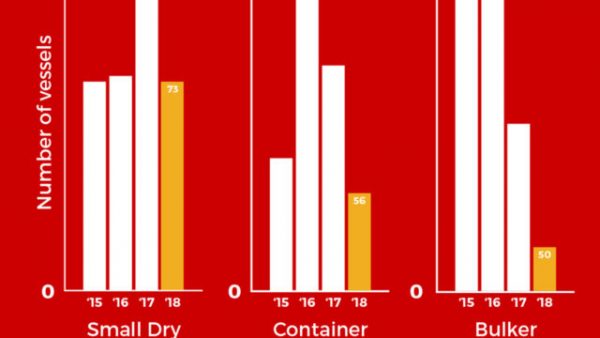Anxiety builds over IMO 2020 ship content directive

. As refiners stake $1 billion for low sulphur fuel for vessels
Take-off of the International Maritime Organisation (IMO’s) low sulphur content for ships effective January 1, 2020, might begin on a slow pace, as fuel refiners are far behind schedule.
Less than a year to go, a Wood Mackenzie report said refiners would need to undertake major projects to supply 0.5 per cent sulphur fuel oil to ships, and have committed about $1 billion to some new projects that would take years.
The report said early market signals on the supply of 0.5 per cent fuel oil indicate that it is not likely to be readily available, nor priced at a discount to crude (typical of the current 3.5 per cent grade), with attendant cost implications for ship owners.
Vice President, Refining, Chemicals and Oil Markets, Wood Mackenzie, Alan Gelder, said the range of potential outcomes remain wide; clarity may not emerge until the fourth quarter of 2020.
“Refinery investments will also be important, as refiners could undertake major projects to supply 0.5 per cent sulphur fuel oil. To date, few have committed to major capital projects and those that have are investing around $1 billion on projects that will take a number of years to implement.
“If this was delivered by the refining industry alone, it would be the biggest ever one-time removal of sulphur in a transport fuel. A key issue is that this legislation is not an obligation on the shipper, not the refiner,” he said.
Gelder added that, “certainties are few and far between, with more unknowns than knowns.”
Wood Mackenzie’s base case assumed high, but not full, global compliance, and the shipping sector swapping one million barrels per day of high-sulphur fuel oil demand by a similar volume of marine gas oil.
Despite the legislation coming into force in less than 12 months, Gelder said the range of potential outcomes remains very wide, as neither potential boundary case has been fully eliminated.
“One boundary case is that the regulatory enforcement is strict, delivering high global compliance. This would be disruptive for the refining sector, as it would be unable to process all of the displaced high-sulphur fuel oil as a refinery feedstock. The surplus fuel oil would need to compete its way into the power sector by pricing at comparable levels to coal.
“The surge in gas oil demand would require refiners to process more crude and we would be in an era reminiscent of the early 2000s, when strong demand growth for clean fuels drove up the global price of crude oil, distorting crude pricing and product pricing relationships. This would deliver enormous profits for the refining sector, but history suggests such distortions are often short-lived.”
As the new rule takes effect, the cost of ocean freight – and some international waterborne trade would increase, as shippers need to invest or buy more expensive fuels.
Also, he noted that refinery earnings should improve, as tighter fuel quality standards requires higher activity levels by the refining sector, for which it will earn a margin; the relative value of crude oils will change, as high sulphur, heavy crudes will become less valuable than today.
This will have an impact on the upstream sector and has the potential for this legislation to drive all crude prices higher, among others.
Gelder added that: “There are a number of key issues to watch. Firstly, government capabilities to monitor adoption and their appetite to enforce this regulation, as this will determine overall compliance. At present, the regulation will be enforced by the countries ships dock at port. It will be illegal for a vessel to have non-compliant fuel on board, but not all ports have the capability to test the quality of marine fuels and not all countries have ratified this IMO regulation into their national legislation.”








